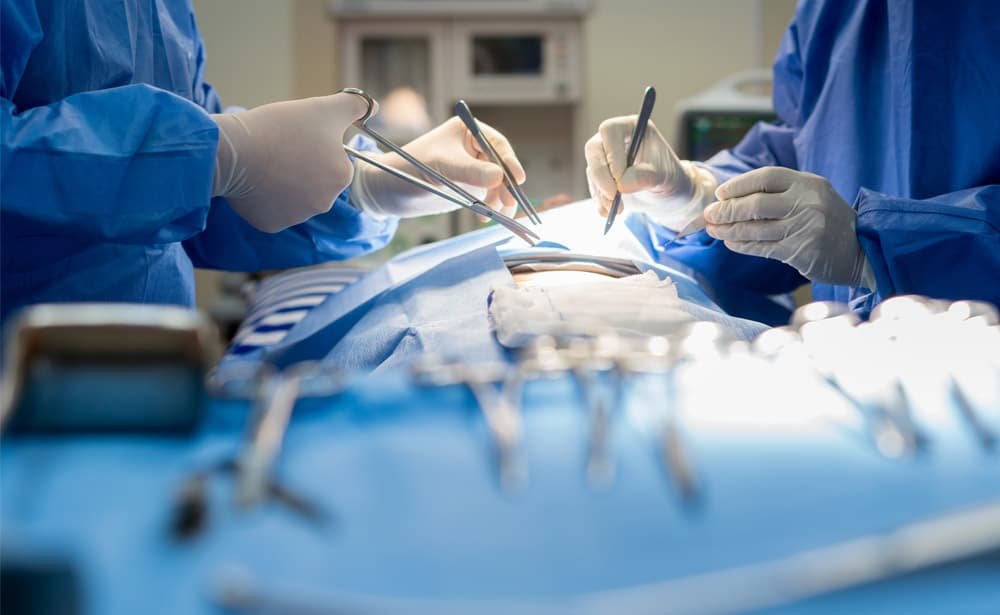Plastic surgery is a specialized field of medicine that focuses on reconstructing, restoring, or altering the human body. It encompasses both reconstructive and aesthetic (cosmetic) procedures. Correcting defects or deformities caused by congenital conditions (birth defects), trauma (injuries), burns, infections, tumors, or disease (such as breast cancer). Restoring breast shape and size after mastectomy (removal of breast tissue) due to cancer. Reconstructing skin and tissues damaged by burns to improve function and appearance. Restoring hand function and appearance after trauma or congenital anomalies. Transferring tissue from one part of the body (donor site) to reconstruct another area (recipient site). Using skin from a donor site to cover wounds or areas of skin loss. Improving aesthetic appearance and symmetry of facial features, body contours, and skin tone.

Plastic Surgery
Vascular Surgery
Vascular surgery is a medical specialty that focuses on the treatment of diseases affecting the vascular system, which includes arteries, veins, and lymphatic circulation. Vascular surgeons diagnose and manage conditions such as peripheral arterial disease (PAD), aneurysms, varicose veins, deep vein thrombosis (DVT), and other vascular issues. Treatment options range from minimally invasive procedures like angioplasty and stenting to traditional open surgeries, depending on the specific condition and its severity. It's a critical field for maintaining circulatory health and preventing serious complications like stroke or limb loss. Vascular surgeons treat a wide range of conditions affecting blood vessels, including carotid artery disease (which can lead to stroke), aortic aneurysms (abnormal swelling of the aorta), peripheral arterial disease (PAD), varicose veins, and venous thromboembolism (blood clots in veins).


Neurosurgery
Neurosurgery is a specialized field of medicine focused on the surgical treatment of disorders affecting the brain, spinal cord, and peripheral nerves. Neurosurgeons are highly trained specialists who perform intricate procedures to address conditions ranging from brain tumors and spinal cord injuries to complex congenital abnormalities and degenerative diseases of the spine. Neurosurgeons treat a wide range of conditions, including brain tumors, vascular disorders (aneurysms, arteriovenous malformations), traumatic brain injuries, spinal cord injuries, herniated discs, congenital anomalies, epilepsy, and Parkinson's disease. Diagnosis often involves advanced imaging technologies such as MRI (Magnetic Resonance Imaging), CT (Computed Tomography) scans, and PET (Positron Emission Tomography) scans. Neurological examinations and tests are also crucial for evaluating a patient's condition.
General Surgery
General surgery is a surgical specialty that focuses on abdominal organs, including the esophagus, stomach, small intestine, large intestine, liver, pancreas, gallbladder, and bile ducts, as well as the thyroid gland. General surgeons are trained to manage a wide range of surgical conditions, both elective (planned) and emergency. Common procedures include appendectomy (removal of the appendix), cholecystectomy (removal of the gallbladder), hernia repair, bowel resections, and surgeries for conditions like gastroesophageal reflux disease (GERD) or thyroid disorders. General surgeons are also involved in trauma care and emergency surgery, including treating injuries to the abdominal organs and managing acute conditions such as appendicitis, bowel obstruction, or perforated ulcers. Some general surgeons may specialize further in areas such as colorectal surgery (focused on conditions of the colon and rectum), breast surgery (including cancer surgery and reconstruction), or endocrine surgery (treating disorders of the thyroid, parathyroid, and adrenal glands).
